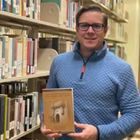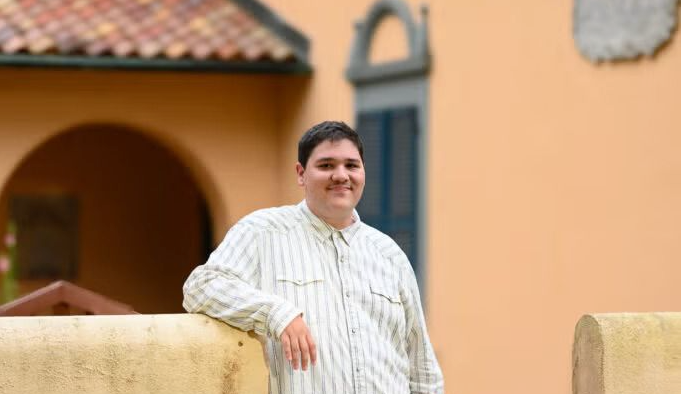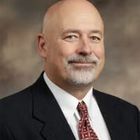Turning on the tap for a drink of clean water may seem like part of an everyday routine for many. Yet, for countless communities—even here in the U.S.—this simple act remains a daily challenge, with each glass or clean drop of water far from guaranteed. One Georgia Southern University professor is working to change that.
Thirty percent of the Navajo Nation population lacks access to clean drinking water. Lewis Stetson Rowles, Ph.D., assistant professor in the Department of Civil Engineering and Construction in the Allen E. Paulson College of Engineering and Computing at Georgia Southern University, is working to increase access to clean water for this community and beyond by engaging with locals to understand how materials used in traditional cultural practices can be transformed into life-changing solutions.
“My first trip to the Navajo Nation as an undergraduate student was a really eye opening experience for me,” Rowles said. “To realize that there were people within the U.S., in our own backyard, who lacked clean water is what inspired my whole career in research and education.”
Establishing trust was an important challenge to overcome for Rowles and his fellow researcher and mentor Navid Saleh, Ph.D., professor of environmental and water resources engineering at the University of Texas at Austin.
“Years of uranium mining left the mineral-rich area and the connection with the Navajo community polluted,” Rowles said. “It has been a decade-long effort to build community relationships, understand the issues and develop potential solutions specific to the needs of the Navajo Nation.”
Finding solutions specific to local needs and cultures is key to their implementation and success according to Rowles.
“We have to work with communities to truly understand the issues and collaboratively develop functional solutions because locals are the people who understand the problems the best,” Rowles said. “I don’t believe that there’s a one-size-fits-all solution. For technologies to really be sustainable, we need to understand if they’re going to work in a specific location, which means we need to develop community-specific solutions.”
Working with the community is important for more than just understanding the issue at hand. When thinking about big-ticket issues, like clean water, Rowles said that it’s easy to fall into the trap of thinking about large-scale, infrastructure-based solutions. But some of the most immediately effective and impactful solutions happen on a much more intimate level.
“Centralized distribution systems take a long time to build, they’re also very costly,” Rowles said. “The need for clean water is dire in many communities, so point-of-use technologies are great because they can be adopted quickly. They also bring power to the people in a way, because technologies can be developed with local materials, like we’re doing here with clay and pinyon resins for ceramic filters. This can create immediate solutions to water contamination issues.”
Rowles, who specializes in environmental engineering, worked with members of the Navajo community to discover how the process of creating traditional pottery can help solve the problem of clean drinking water at a local level for families. Deanna Tso, a third-generation Navajo potter, has been integral to this process to ensure that the novel solutions don’t detract from traditional practices.
“If you’ve ever climbed a pine tree and gotten sap stuck on your hands, you know it’s very sticky,” Rowles said. “The Navajo people have been using this sap for centuries to waterproof pottery and baskets. Meanwhile, one of the biggest limitations to the use of silver nanoparticles for water treatment is the immobilization of those particles. We used this local resin to coat the nanoparticles, keeping them in place and extending the lifetime of the filters while still allowing them to kill bacteria. It also acts as a really unique barrier that prevents silver poisoning by stopping the silver from interacting with other compounds that would inhibit the dissolution of silver nanoparticles into silver ions which kill bacteria.”
By working together to integrate new technologies into existing traditions, Rowles and his partners are one step closer to changing the lives of many in the Navajo Nation. Their hope is that this knowledge will be used to expand access to potable water to more parts of the world.
“While we started working with Deanna on a very specific pine tree sap, the more we’ve researched, we’ve seen there are similar pine and conifer trees throughout the continent, even into Mexico, that have been used by indigenous groups for centuries,” Rowles said. “This means that this research has much broader applications across the world, particularly in areas that lack centralized water treatment systems where people go and collect water from distant sources or wells, bring it back to their house, and then treat it at the household level.”
The extension of this knowledge begins by sharing it, which is precisely what Rowles’ team has done over the last year. They published their research Integrating Navajo Pottery Techniques To Improve Silver Nanoparticle-Enabled Ceramic Water Filters for Disinfection in October 2023 and shortly thereafter began working with PBS NOVA. Their work will now be shared as part of a documentary series highlighting engineers working to positively change the world.
“The Navajo Nation is just one area impacted by lack of access to clean water,” Rowles said. “Around 1.5 million people across the U.S. lack indoor plumbing and many more rely on wells and septic systems that are often aging or failing, leading to sanitation concerns. There are a lot of great organizations and a lot of great research working to address sanitation issues abroad, but I hope this research can open people’s eyes to the fact that this is a local problem, too. Don’t take it for granted that you’re able to turn on the tap and have safe, clean water, because that is not true for a lot of Americans and for much of the world.”
You can continue exploring Rowles’ research on an episode of PBS NOVA—Building Stuff: Change It! and by watching the Innovations in Water Treatment with Navid Saleh from Building Stuff: Change It! Twitch episode of Building Stuff with NOVA.
If you're interested in learning more or a reporter looking to speak with Stetson Rowles - simply contact Georgia Southern's Director of Communications Jennifer Wise at jwise@georgiasouthern.edu to arrange an interview today.





